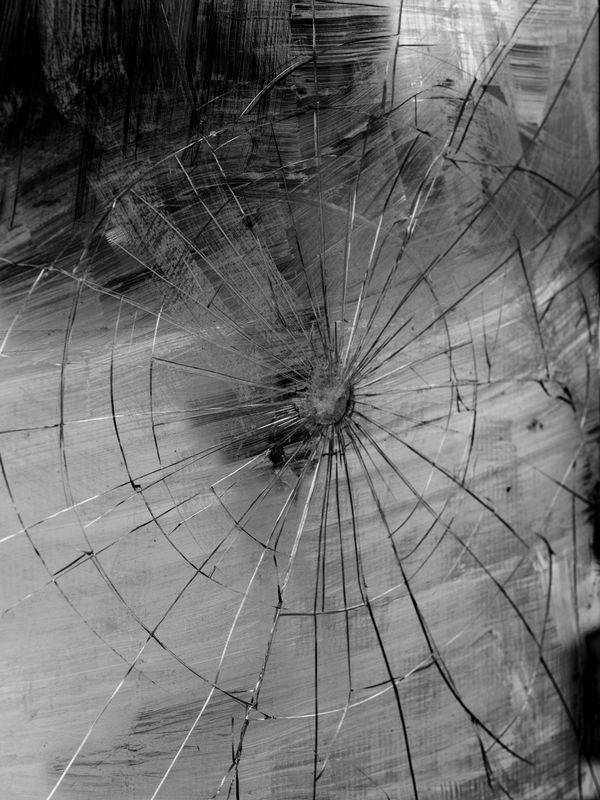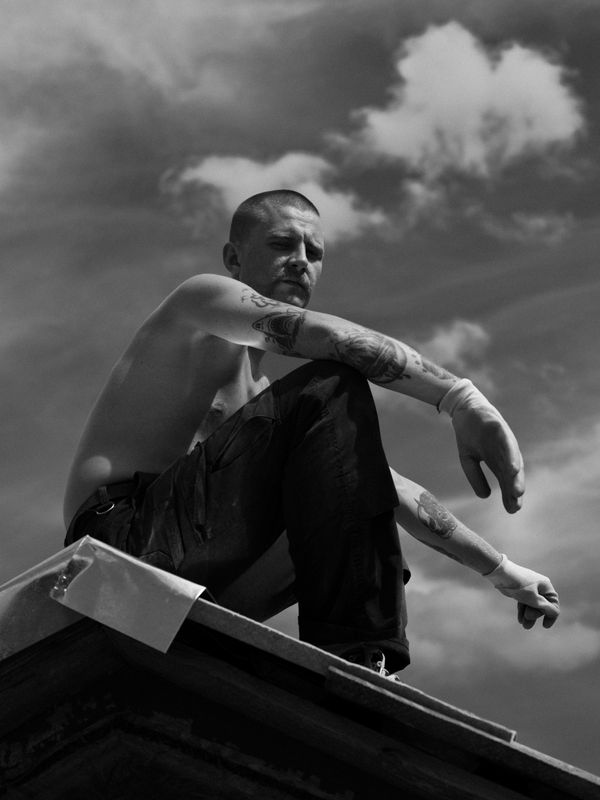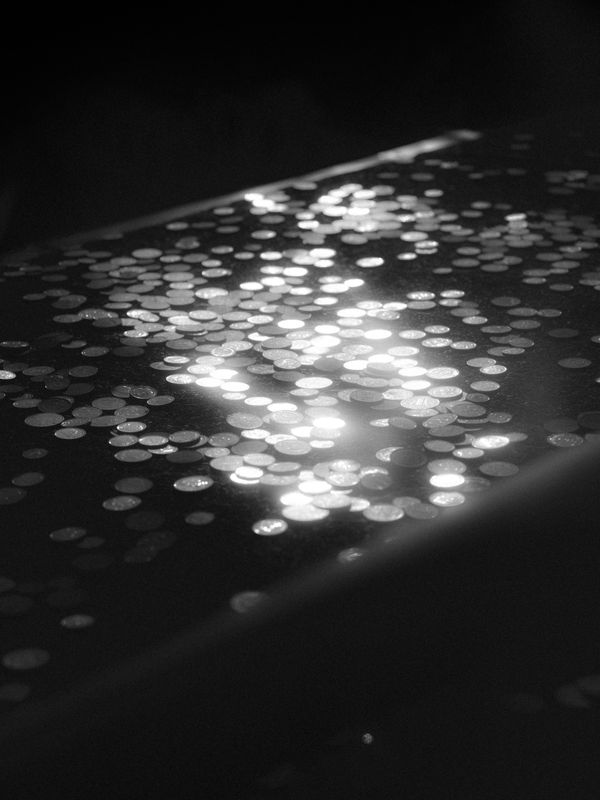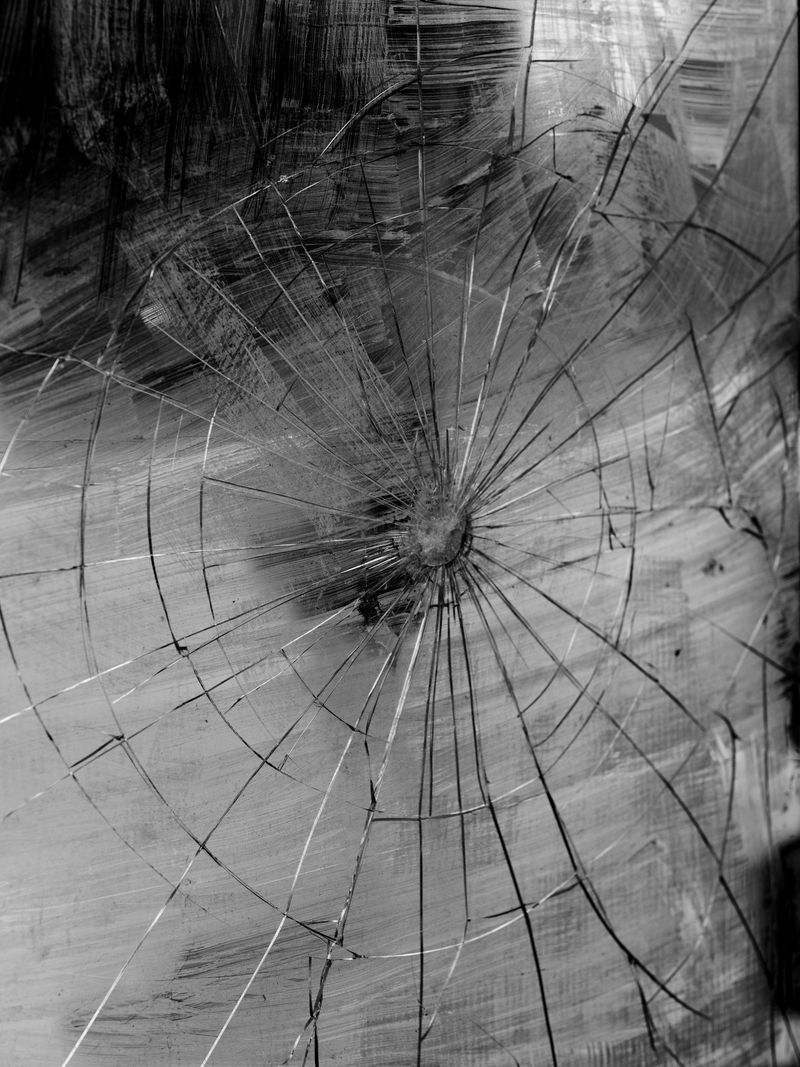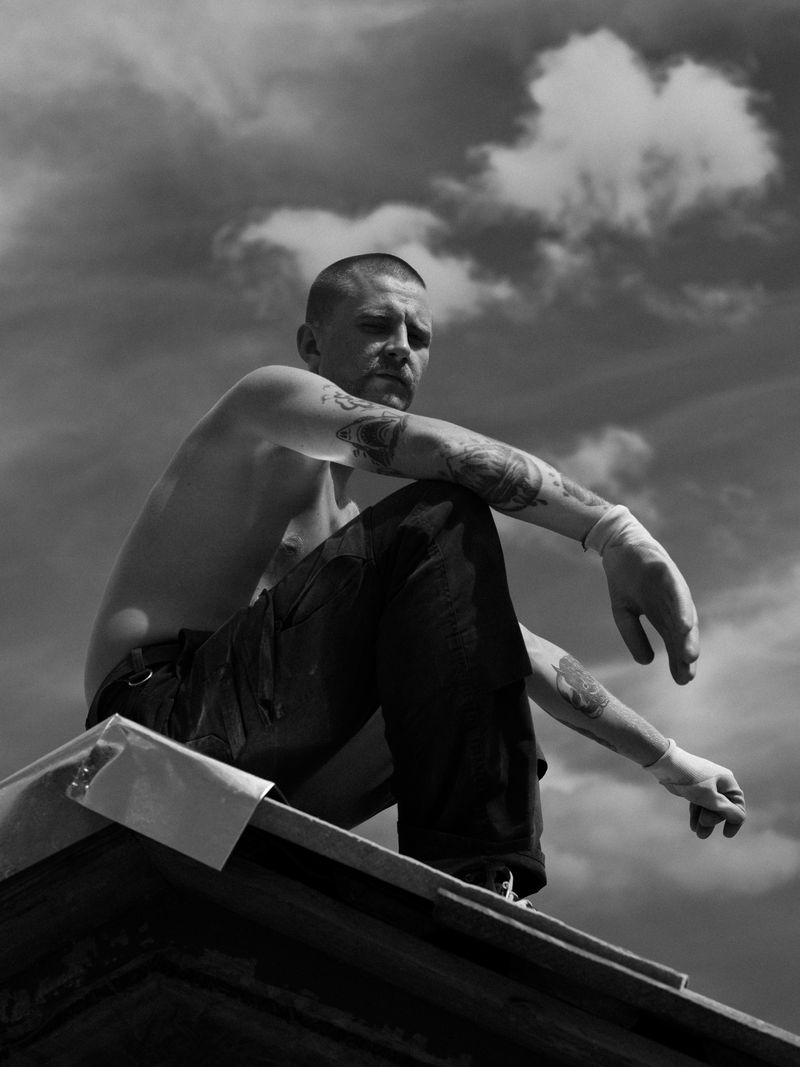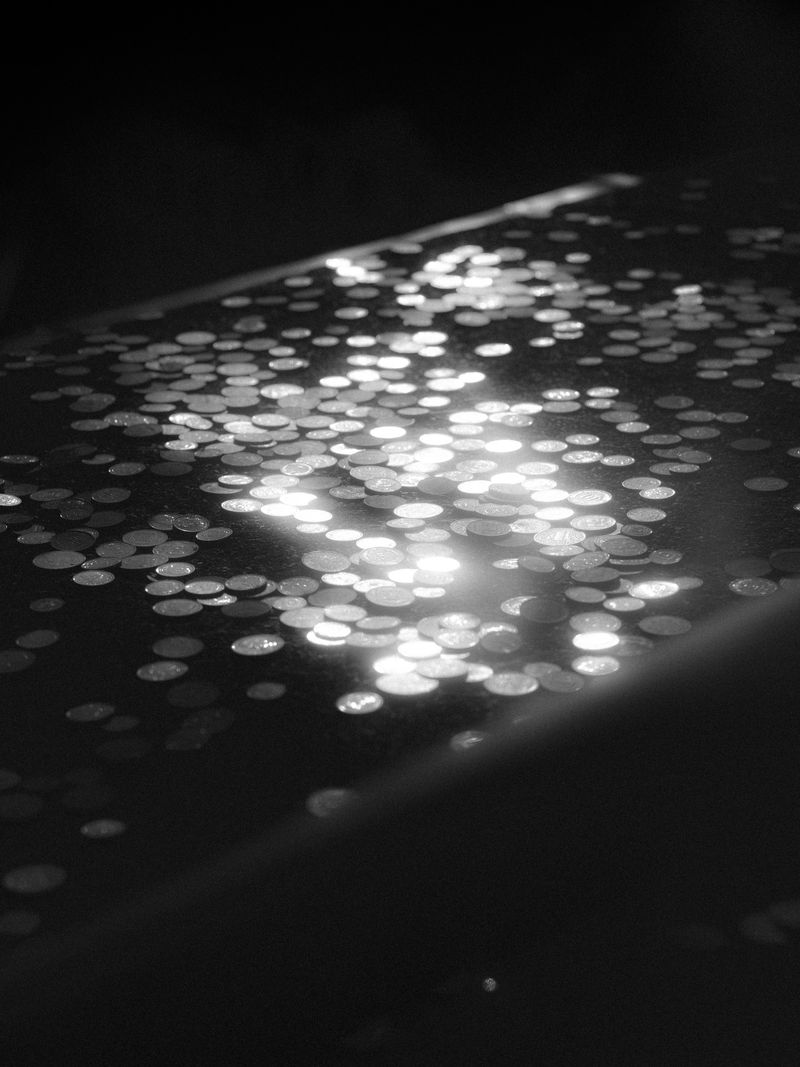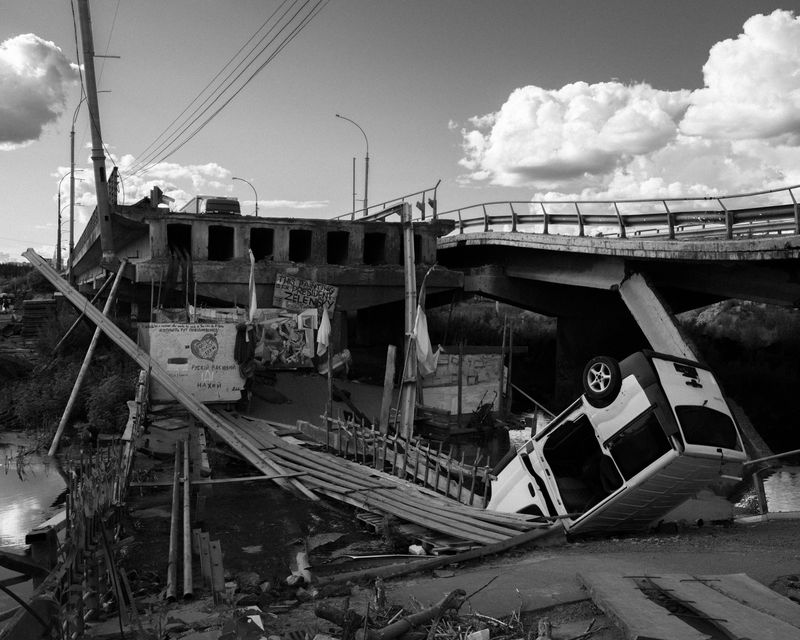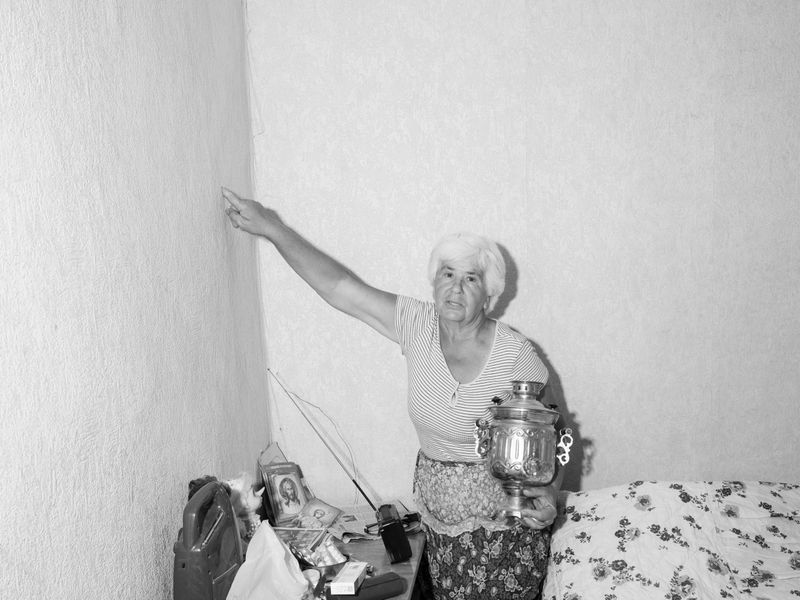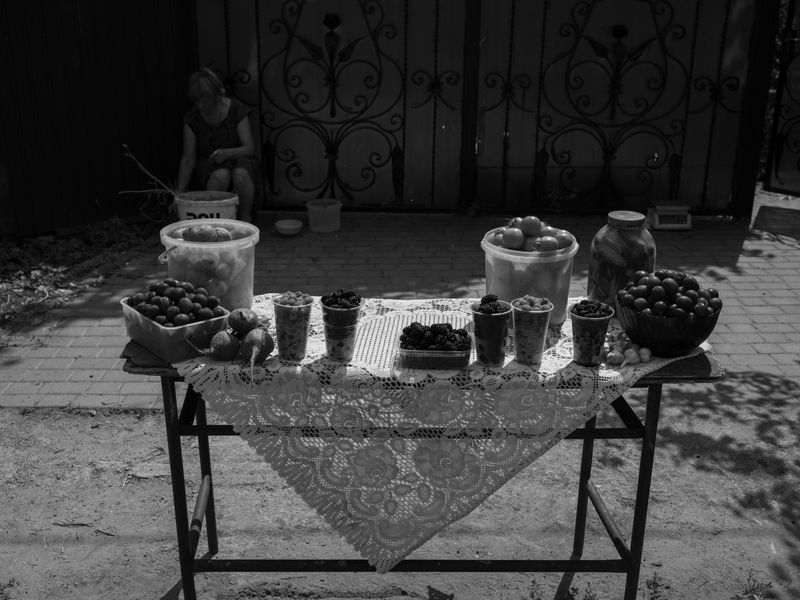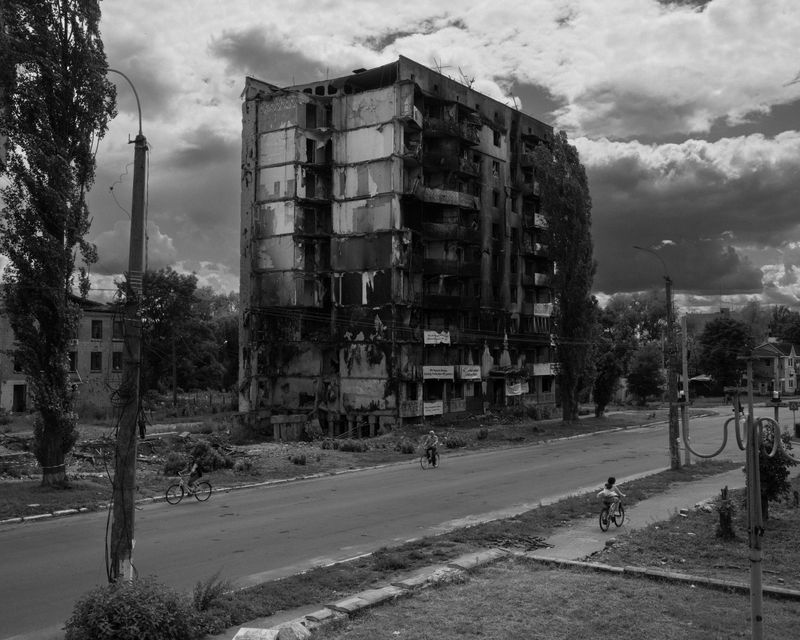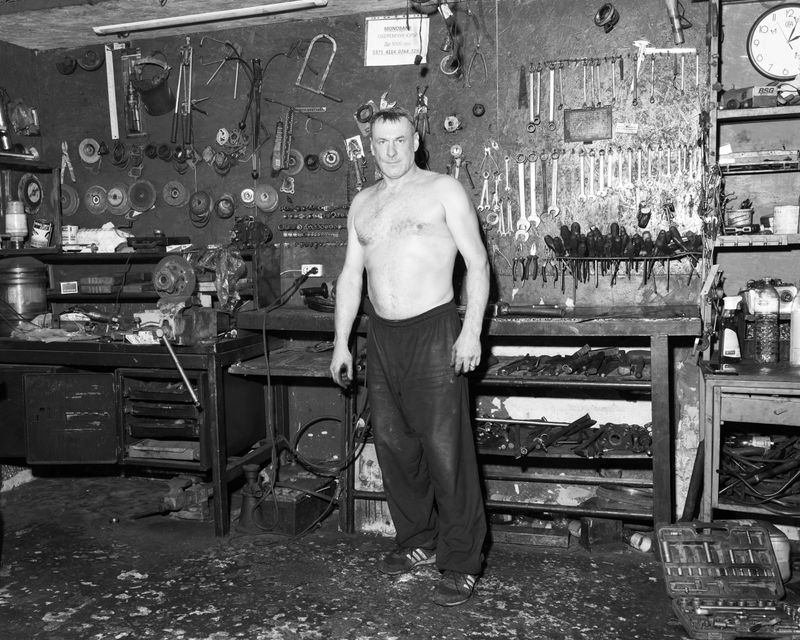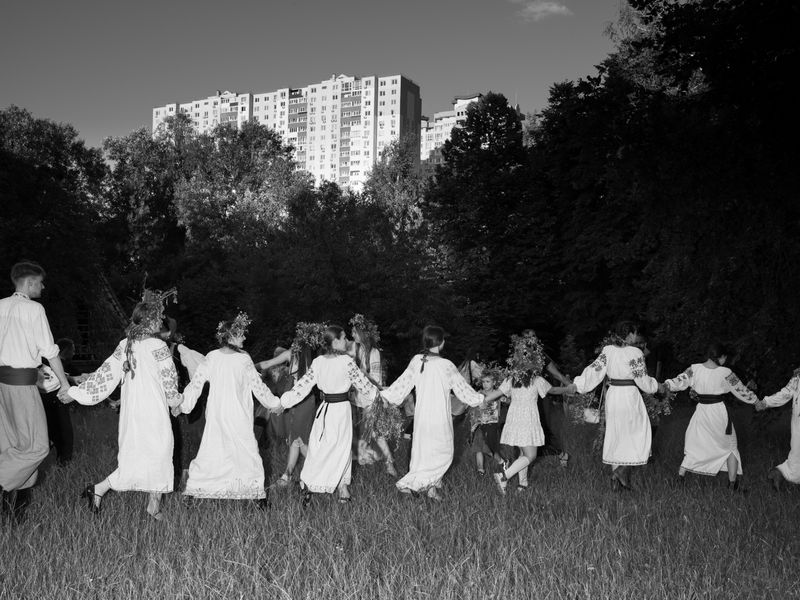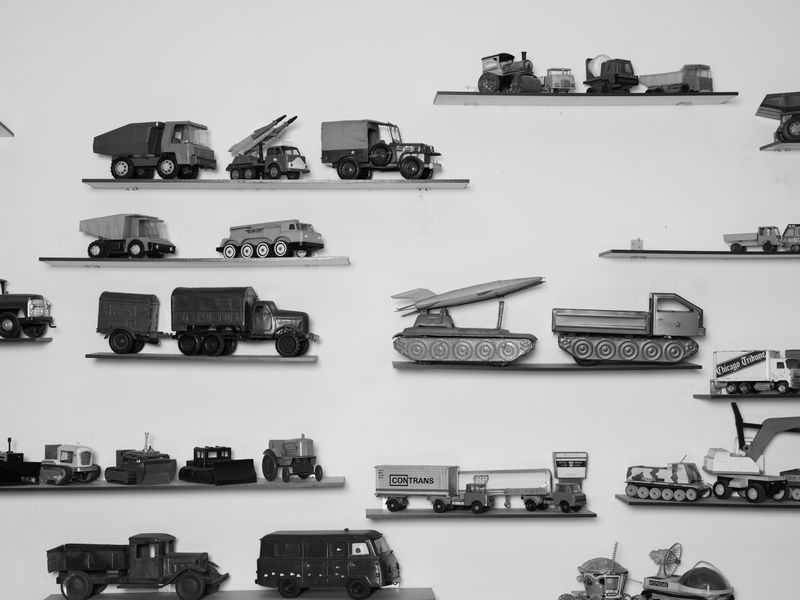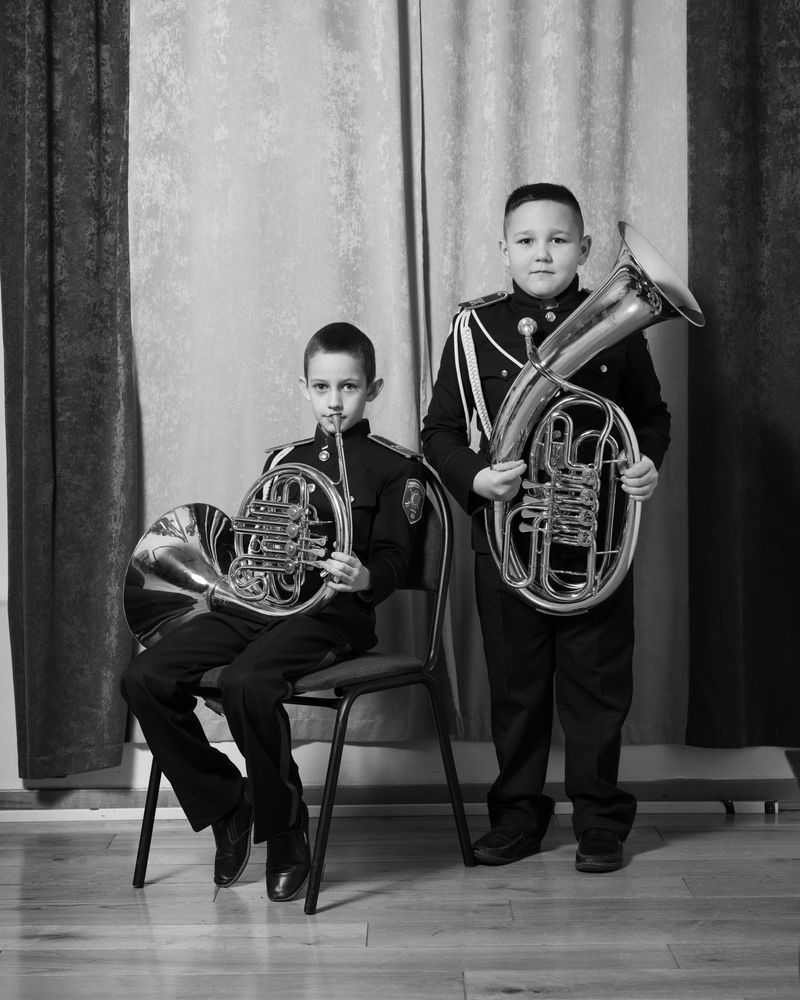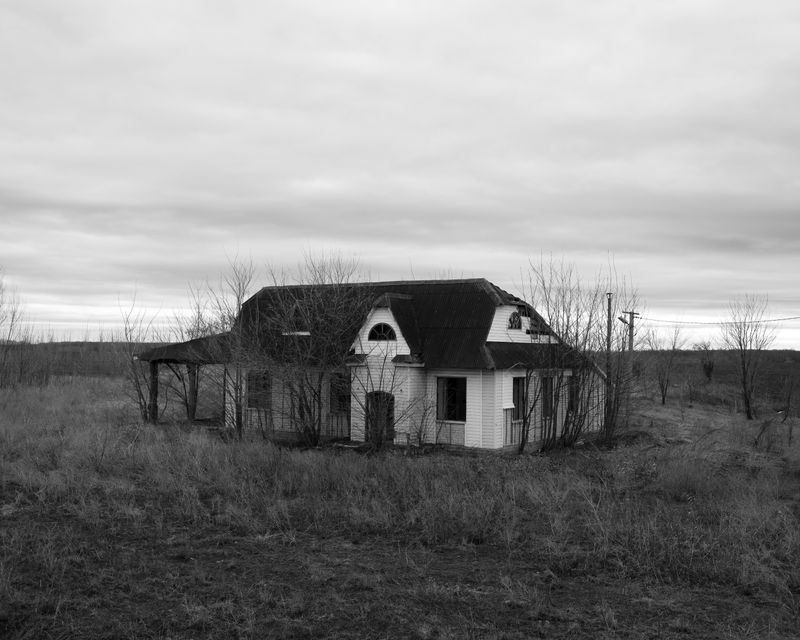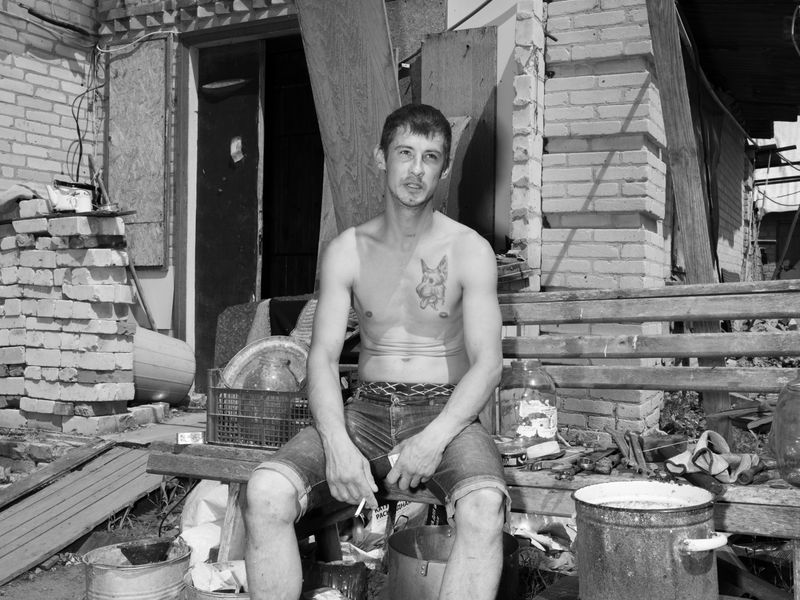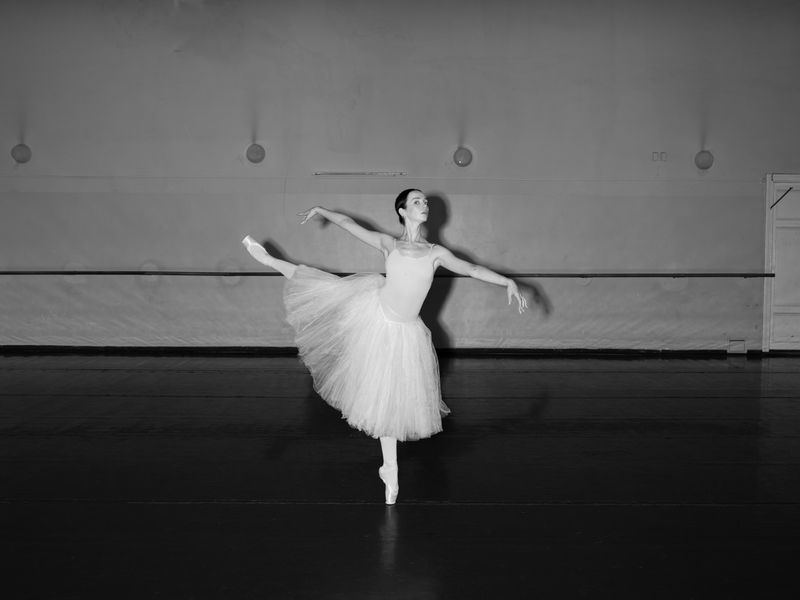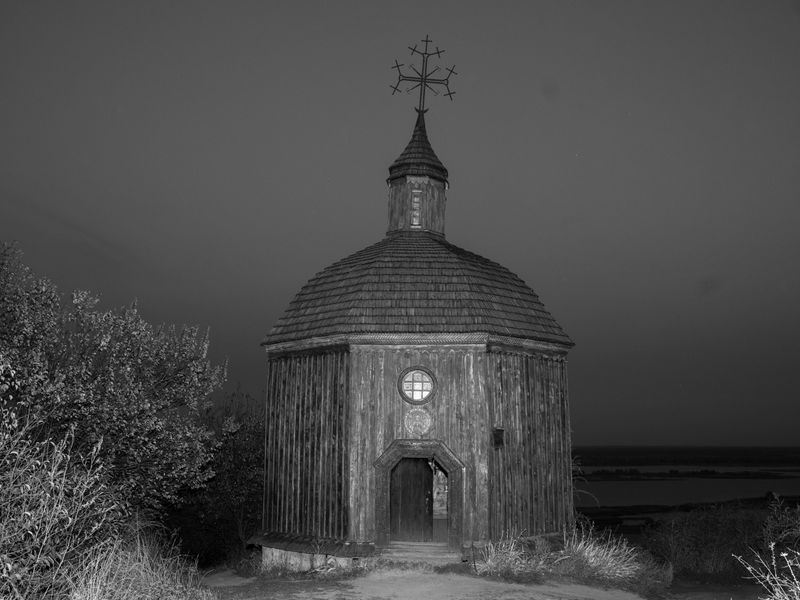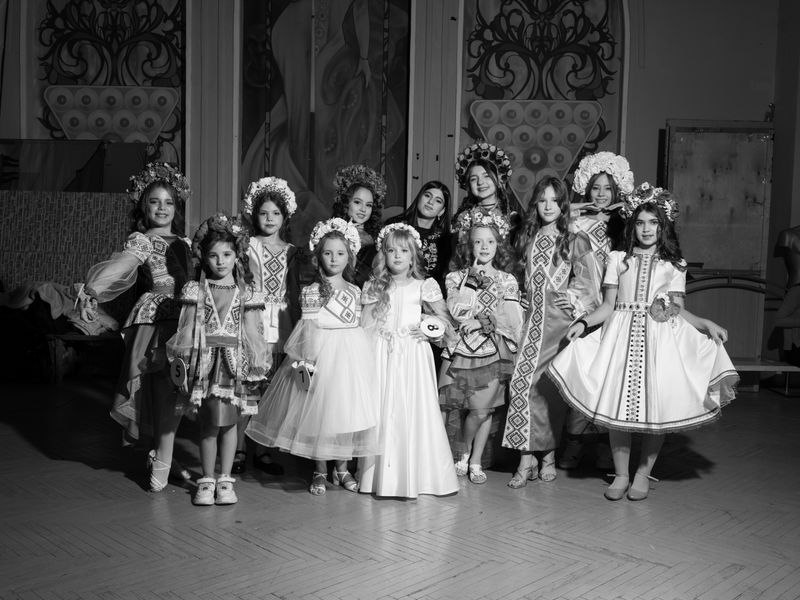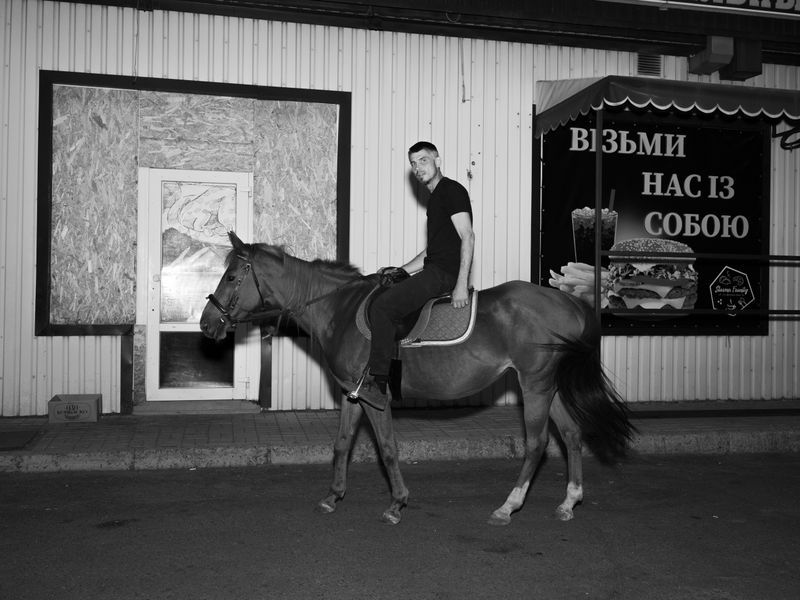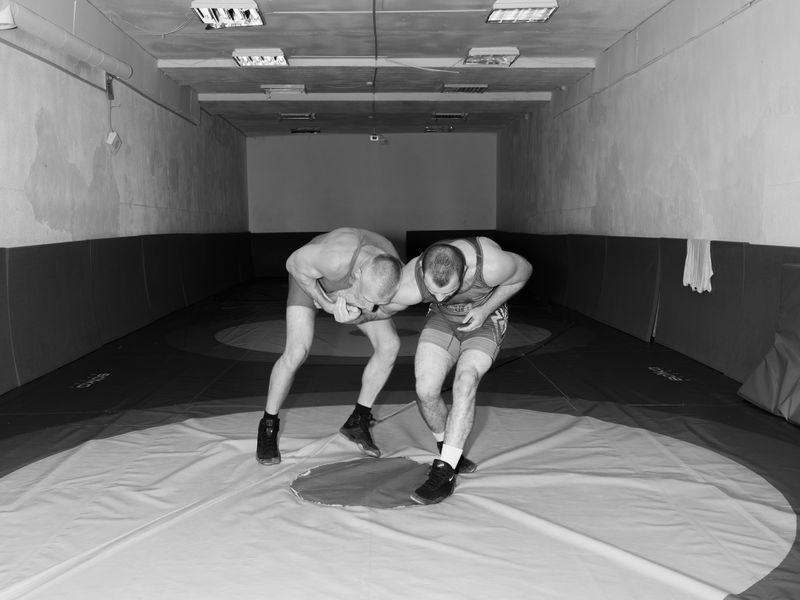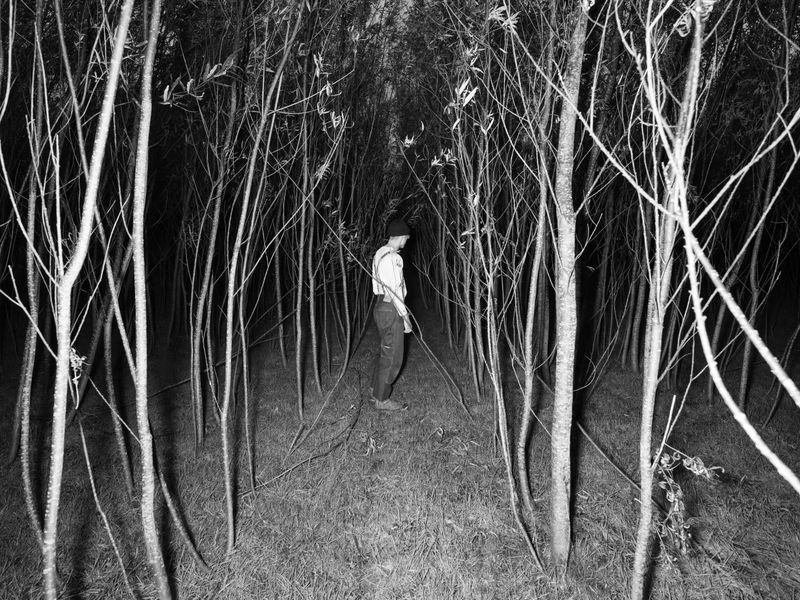Wet Ground
-
Dates2019 - Ongoing
-
Author
- Location Ukraine, Ukraine
-
Recognition
Wet Ground explores Ukraine’s shifting identity amid war, capturing resilience, memory, and transformation. Focusing on the invisible tension between violence and normalcy, Wet Ground reflects on survival, community, and the rewriting of history.
Wet Ground is a long-term documentary project exploring Ukraine’s evolving national identity amid the ongoing conflict. Through a lens of compassion and embedded humanitarian engagement, the work captures the tension between violence and normalcy, a daily coexistence that shapes the lives of communities resisting erasure.
Initiated in 2019 during extended stays with friends in Ukraine, the project deepened when Russia’s full-scale invasion began in 2022. Many of my friends became soldiers; in response, I joined NGO “Base UA” as a volunteer, supporting evacuations, rebuilding homes, and running creative workshops with young people in rural communities. This intimacy enabled me to focus on the quieter moments, the blind spots of war, where identity, memory, and resilience quietly persist.
Wet Ground unfolds in three interconnected chapters: Land, Collective Identity, and Memory; The Machinery of War; and Legacy and the Future Generation. The project’s title comes from a personal experience during a civilian evacuation in Siversk, when a rocket misfired because the ground was wet. "Wet ground" became a metaphor for unstable foundations, yet also for survival against odds. This duality is the heart of the photobook: how to build something lasting on ground that is still trembling.
The book, currently under discussion with French publisher Loose Joints, is envisioned as my first monograph. The intention is to design a tactile, immersive publication that interweaves stories from daily life in Ukraine during one of the darkest chapters in its history, gathering a constellation of voices from different generations, backgrounds and experiences of the conflict. The sequencing aims to evoke cycles of rupture and recovery, guiding the reader through the dramatic transformation of psychological and physical geographies. The photobook form is essential to Wet Ground, not just as a publication that attempts to redefine portrayals of conflict, but as an archival resource for the future generations, a document that allows memory and identity to live on.
Visual Approach:
Documentary at its core but experimental in form, Wet Ground departs from conventional representations of war by focusing on what endures, what rises from the ashes. My images don’t attempt to ignore violence but to reveal the full spectrum of life that unfolds within it. Built on over six years of sustained engagement and trust with communities in Ukraine, the work is rooted in deep collaboration. This access has enabled me to document not only the visible aftermath of conflict, such as damaged landscapes and reconstructed homes, but also the quiet gestures of daily life, the blind spots of war. These photographs create a layered narrative that reflects the constant cycle of destruction and resilience, in an attempt to offer the viewer a window into a reality far more complex and nuanced than what is typically portrayed in the media.
Objective:
Wet Ground seeks to expand the traditional boundaries of war photography by focusing on overlooked details and lived human experience, placing the affected community at the centre of the narrative and utilising photography as a tool for social action. It offers a slow, sensorial exploration of how conflict reshapes not only land and cities but relationships, memory, and identity. Through the PhMuseum 2025 Photobook Award, I hope to bring this story to a wider audience and contribute to the archive of contemporary resistance and remembrance in photobook form.
